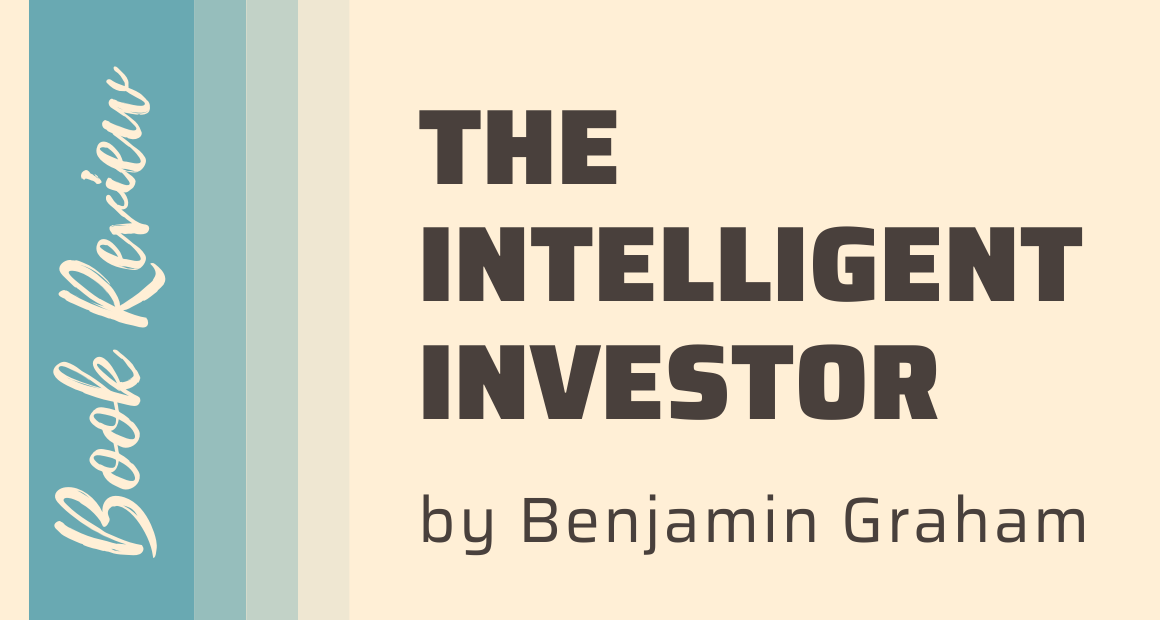Title: The Intelligent Investor
Author: Benjamin Graham
Publisher: Harper Business
Genre: Business, Investment
First Publication: 1949
Language: English
Book Summary: The Intelligent Investor by Benjamin Graham
The Intelligent Investor by Benjamin Graham was first published by Benjamin Graham in 1949. This book has been acknowledged globally as the greatest investment advisor of the twentieth century and has taught and inspired people worldwide.
Benjamin Graham’s philosophy of ‘value investing’ which shields the investors from making substantial errors has made this book, The Intelligent Investor by Benjamin Graham, the stock market bible. in addition, Graham helps people to come up with ways to make long term strategies that help them to meet their financial goals.
Over the years, market developments have proven the wisdom of Graham’s strategies. While preserving the integrity of Graham’s original text, this revised edition includes updated commentary by noted financial journalist Jason Zweig, whose perspective incorporates the realities of today’s market, draws parallels between Graham’s examples and today’s financial headlines, and gives readers a more thorough understanding of how to apply Graham’s principles.

Book Review: The Intelligent Investor by Benjamin Graham
According to the author, there are two types of intelligent investors: enterprising investors and defensive investors. Enterprising investors aim to beat the market by discovering and purchasing highly undervalued stocks, while defensive investors settle for matching the market by diversifying. This is one of the best and most practical books about Investments written.
In order to beat the market, enterprising investors must be smarter and better informed than the vast majority of their competitors. If someone without the requisite skills and knowledge attempts to beat the market average, they’re likely to perform worse than the market average. Thus, the vast majority of us would be wise to settle for the stock market‘s approximate 10% average annual return.
“An investment operation is one which, upon thorough analysis, promises safety of principal and an adequate return. Operations not meeting these requirements are speculative.”
In The Intelligent Investor by Benjamin Graham, Investment is also specifically mentioned to be different from trading or speculating. Some may call it ‘Fundamental’ investing and what it means is just that one must study the company’s fundamentals (financials/management) before selecting it for investment. Normally the investment would be long term and the only time to sell is if the company’s direction or management does not fit with investor’s requirements anymore.
“Those who do not remember the past are condemned to repeat it.”
Lastly, The Intelligent Investor by Benjamin Graham introduces the concept of Margin of Safety. Of course, the writer puts this concept in context of the Great Depression of the 1930s. The idea is that even if a stock looks cheap on paper, you still can get screwed by the irrational Mr. Market who prices it lower and lower. So a stock that looks borderline cheap is not good enough.
Ben Graham recommends to have a bigger Margin of Safety and buy it really cheap. It will help with the sleeping soundly at night too. It is the result of living through the Great Depression and it is a lowering of one’s risk to the point where the returns will be quite limited too.
“But investing isn’t about beating others at their game. It’s about controlling yourself at your own game.”
Graham’s investment philosophy is anchored around the concept of “margin of safety“: past behaviour of the company is the best available predictor of its future results (and thus returns on investment). Not a good script for a high-risk speculative investment (which Graham calls exactly that – speculation, not investment)
“The intelligent investor is a realist who sells to optimists and buys from pessimists.”
In particular, I liked the focus on some physiological pitfalls an investor can encounter. For example, the “home bias”: investing in “what I know” can be dangerous, since it makes me as an investor lazy and complacent. Or discussion on the role of “Mr.Market” who comes to you every now and then and recommends what your business must be worth or what you should sell it for (“an intelligent investor should never buy a stock because it has gone up or sell one because it has gone down.”)





